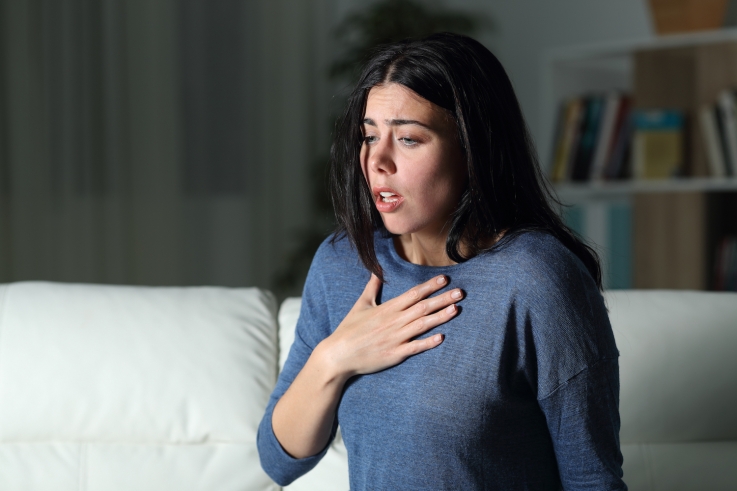
What is anxiety? “Anxiety is your body’s natural response to stress. It’s a feeling of fear or apprehension about what’s to come. The first day of school, going to a job interview, or giving a speech may cause most people to feel fearful and nervous (Healthline, 2018). Anxiety can be as simple as a feeling or as complex as not being able to move your body. This can occur during an anxiety attack. An anxiety attack is a sudden episode of fear or overwhelming sense of panic. Why is it important to take anxiety seriously? According to the Harvard Health Blog, “Constant anxiety levies a toll on health. For example, anxiety increases levels of the stress hormone cortisol, raising blood pressure, which contributes over time to heart problems, stroke, kidney disease, and sexual dysfunction”. Anxiety should be taken seriously as it can cause more health problems over time.
What can you do to get rid of your anxiety? First you need to assess the reason why you’re anxious. Once you’re able to figure that out, try and stay away from anything that may trigger you. Sometimes losses can be the best gains. Sometimes you have to lose people or jobs or habits in order to grow and heal. In order to allow yourself to overcome obstacles you need to allow yourself room to breathe. Take a break from whatever it may be that’s stressing you out. This can be a job, unhealthy habits or even a relationship.
A few tips to help relieve your anxiety can include:
- Lifestyle changes, such as skipping caffeine, exercising regularly, and avoiding medicines or substances that might cause anxiety symptoms.
- Mind-body approaches, such as deep breathing, meditation, mindfulness, and techniques to ease muscle tension and promote calm.
- Psychotherapy, such as cognitive behavioral therapy (CBT) and exposure therapy. CBT teaches people to challenge and reframe distorted or unhelpful anxious thinking, because thoughts influence feelings and actions. Exposure therapy helps people tolerate and calm anxiety by gradually exposing a person to feared situations or objects under guidance from a therapist.
- Medicines, such as short-acting drugs called benzodiazepines, which are taken as needed when anxiety spikes. Low doses of some antidepressants, particularly selective serotonin reuptake inhibitors (SSRIs), help relieve anxiety when taken daily (Harvard Healthline Blog).
The next step to healing is talking to a professional. A professional will be able to assess the situation from an unbiased point of view. Faith Consulting offers one on one video sessions with mental health practitioners. Are you looking to talk to someone who understands your beliefs and values? We have an extensive variety of psychologists from all around the world.
Find someone that works for you and can help you in the most personable way possible. Become a member today and book your first session!
Written By Anan Helwih